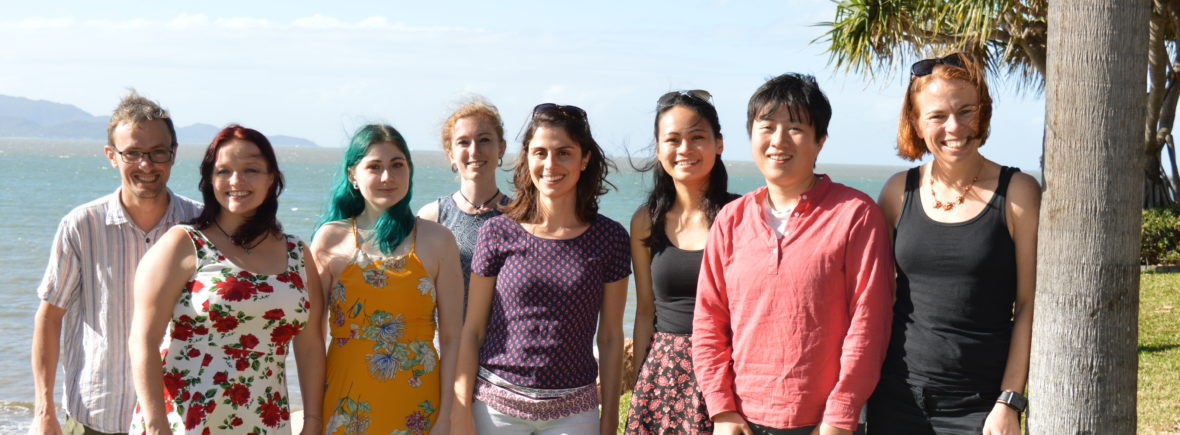Jan Strugnell
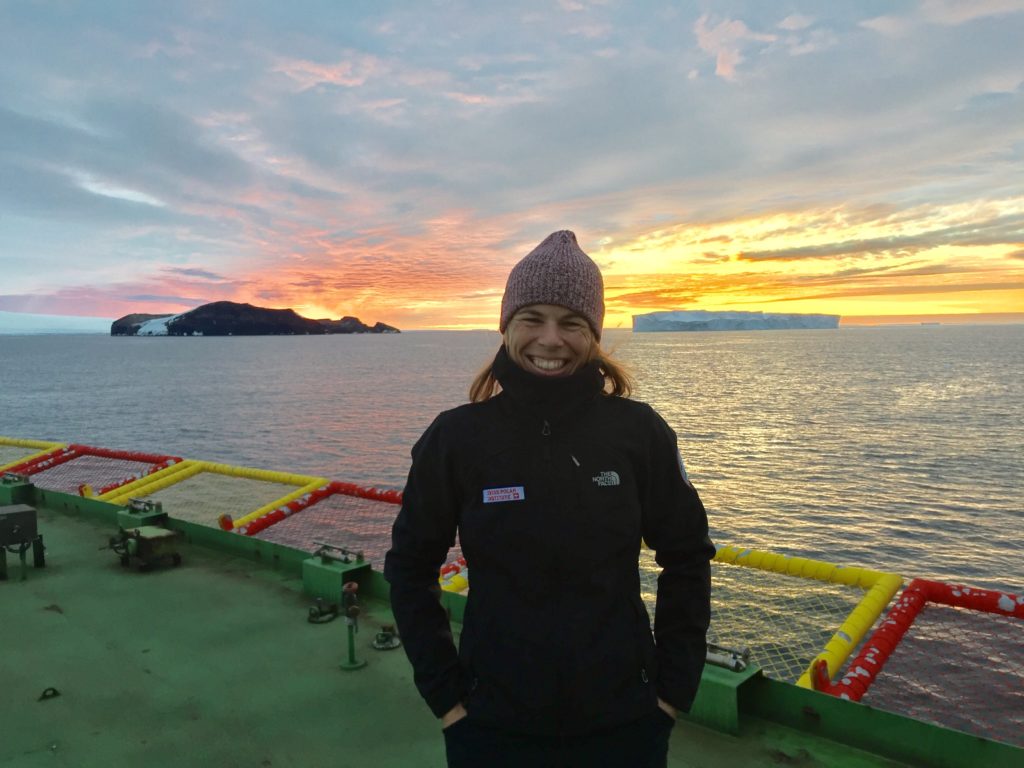
Jan applies next generation sequencing tools to help solve bottlenecks in fisheries and aquaculture industries. Supported by the ARC, her laboratory group is investigating population differentiation, recruitment and adaptation in a range of commercially important lobster species and are investigating the genetic basis for resilience and susceptibility to temperature stress in abalone. Jan also works on marine species that are shifting range in response to climate change and employs eDNA techniques to detect rare and invasive aquatic and marine organisms. She also investigates population and species level molecular evolution in Antarctic and deep-sea taxa in the context of past climatic and geological change.
Jan Strugnell investigates the evolution and function of marine organisms using genomic and proteomic techniques. Her research encompasses both applied and blue skies questions.
Ira Cooke
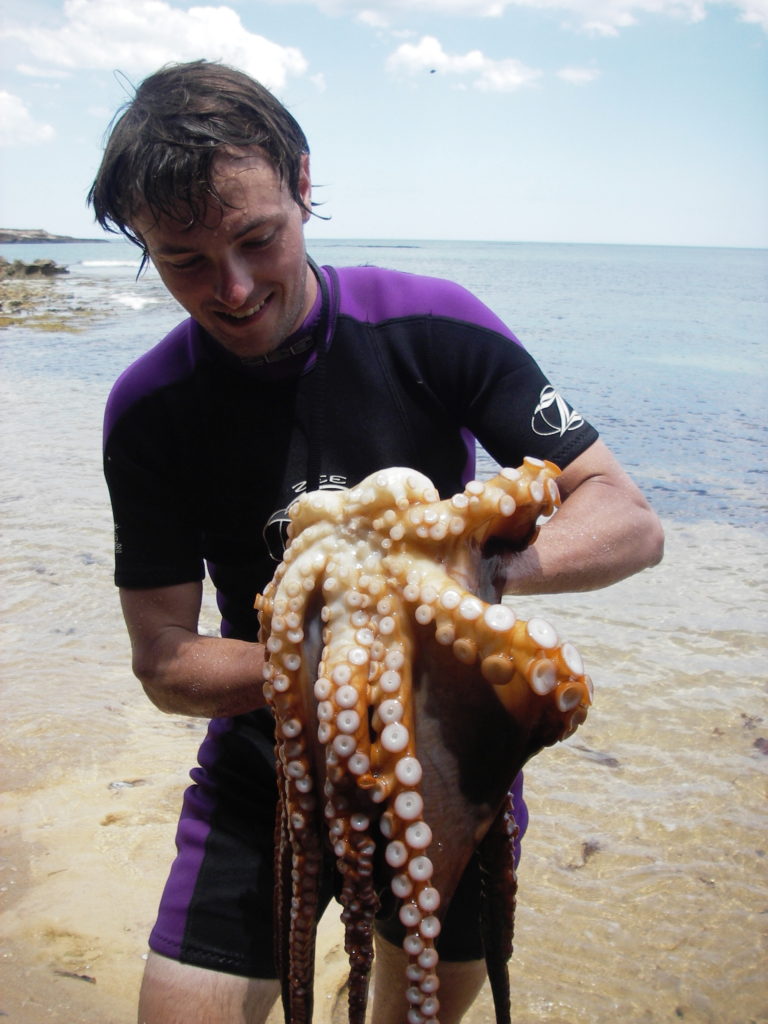
Ira is interested in computational tools and workflows for analysing large ‘omics datasets. He applies these to a wide variety of research questions from clinical applications of genomics to human health to aquaculture and the biology of corals and cephalopods.
His two main research interests currently are the application of population genomic techniques to understand recent evolutionary processes, and the use of gene expression measurements (proteomics and transcriptomics) to understand the molecular bases of key biological functions in marine invertebrates including development, toxicity, immunity and microbial interactions. He often develops new workflows and occasionally develops new computational tools to assist with these analyses.
Sally Lau
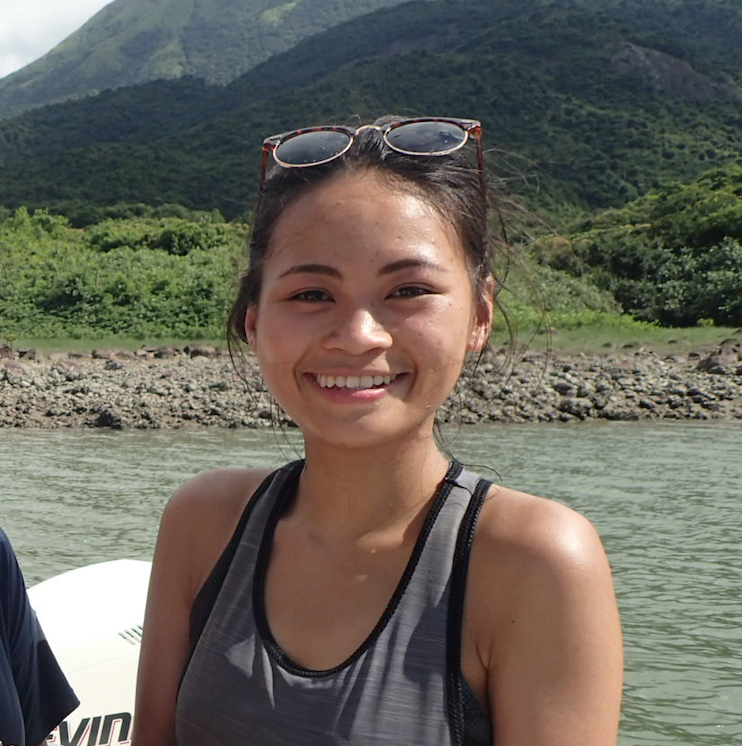
Sally is fascinated by how and where did the Southern Ocean benthic fauna survive repeated environmental extremes in the Quaternary. She studied the reproduction of an Antarctic bivalve for her MSci and population genomics of the Southern Ocean octopus and brittle stars for her PhD.
She is now working as a post-doctoral researcher on using genomic techniques to understand demographic history and functions in the Southern Ocean.
Jia Zhang
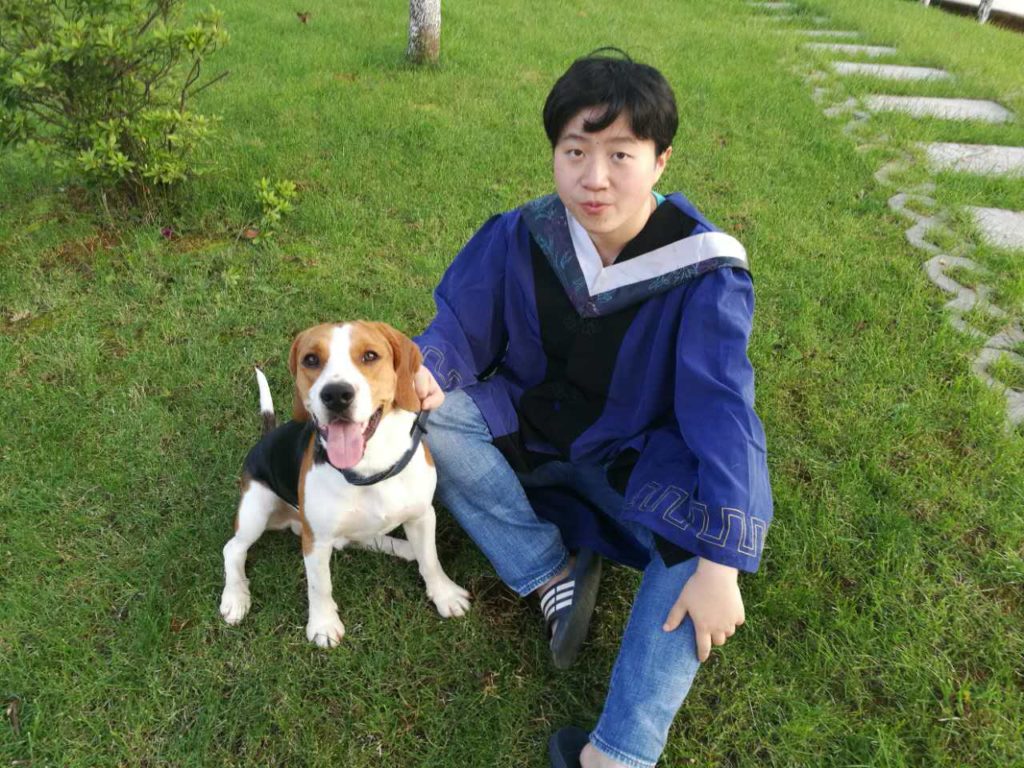
Jia likes to use bioinformatic tools to analysis genomic data. She is also interested in developing new tools, pipelines and data visualisation. She finished her Master’s degree in Genetics at Kunming Institute of Zoology, CAS where she did de novo genome assembly for several mammals and transcriptome analysis for different tissues in high-altitude rodentia.
Currently, She is working on whole genome sequencing data of Acropora to understand the population history, genetic basis of heat tolerance adaption and the underline regulation network in coral.
Nicola Rodewald
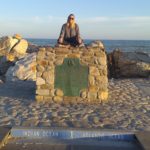
I have always been fascinated by the weird and wonderful world of marine benthic invertebrates. For my MSc, I used morphological and molecular data to resolve the taxonomy of a non-indigenous Polydora species on farmed oysters in South Africa.
My PhD will focus on population genetics of Antarctic benthic invertebrates using reduced representation genomic methods and will have a particular focus on dispersal
Joe Perkins
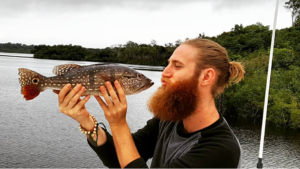
I completed my degrees at the University of Salford in the UK, where I studied Wildlife Conservation at undergraduate level before completing a master’s by research in Molecular Ecology. For my MRes, I used eDNA metabarcoding to monitor migratory species and assess connectivity, on the once most polluted river in Europe, the river Mersey. I am particularly passionate about sustainable fisheries and the latest molecular techniques in advancing this research area.
As the increase in human population puts major pressures on global fisheries, the need for sustainable and safe aquaculture practice has never been more important. This pressure has brought its own problems including food safety and mislabelling. Being able to establish provenance of certain seafood species is now key to consumers, governing bodies, wild fisheries, and aquaculture industries. Due to the difficult and sometimes impossible task of visually identifying taxa from population, species and even higher taxonomic levels, there is an evident need to come up with more rapid and effective solutions. My PhD will aim to address these issues by developing genetic tools to assess the provenance of Australian seafood.
Matthew Quin
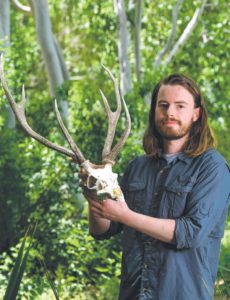
Matt completed his Bachelor of Science (Wildlife and Conservation Biology) and Master of Science (Research) at La Trobe University in Melbourne. For his Master’s, he used DNA metabarcoding techniques to investigate the spatial and temporal dietary behaviour of non-native sambar deer (Rusa unicolor) in south-eastern Australia.
Matt commenced his PhD within the Marine Omics lab group in 2021 and intends to explore the population genetics of another non-native ungulate, chital deer (Axis axis), in the north-Queensland dry tropics region. Stemming from a founding population of only four individuals, chital deer have significantly increased their population size and distribution across the region in recent decades. Matt anticipates that the use of population and landscape genetic analysis techniques in his PhD will help predict the areas that chital deer will occupy in the future, and inform effective management of the species.
Roy Barkan
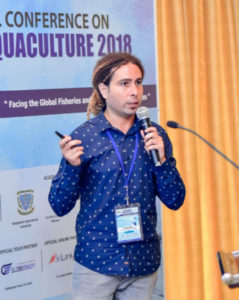
Roy completed his MSc in marine biology and biotechnology at the University of Ben-Gurion in Israel. During his masters he focused on fish nutrition. He used molecular and bioinformatic tools to study the effects of reducing fishmeal and using alternative feed ingredients such as algae. Roy worked for the National Center for Mariculture (NCM) in Israel for 6 years and was the head technician is the water quality and engineering department.
Roy is now doing his PhD, working on one of the major issues that abalone populations are facing – mass mortality events which mainly occur during summer months and referred as ‘summer mortality’. He is exploring the genetic mechanisms that might be responsible for heat resistance.
Eva Paulus
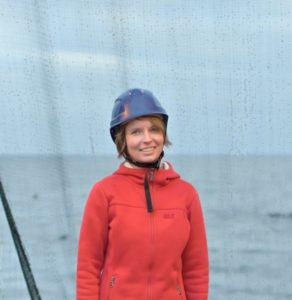
Eva is German and hates the cold, which is why she is very happy to be in tropical Townsville to do her PhD on dugong population genetics now. She did her bachelors at a small University in Florida, Barry University, and moved back to Europe to complete her MSc at the University of Groningen in the Netherlands.
She has worked on many different organisms: deep-sea hydrothermal copepods, benthic isopods, mesopelagic fishes, eels, and now marine mammals!
Nadja Schneller
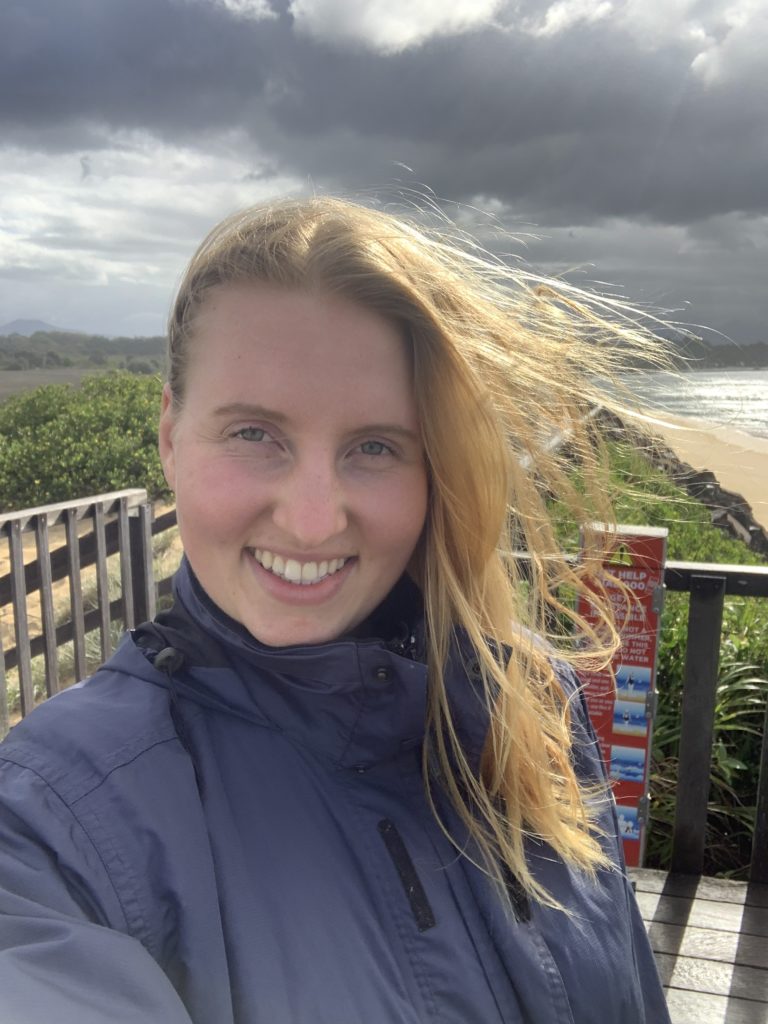
Nadja is passionate about wildlife and biodiversity conservation and how we can use the power of genetic tools to inform ecosystem and population management. During her time as an undergraduate student studying a Bachelor of Science majoring in Ecology and Conservation Biology at Monash University, Nadja joined the Wildlife Genetic Management Team led by Prof. Paul Sunnucks and Dr. Alexandra Pavlova and worked on genetic rescue of the endangered Macquarie Perch, an endemic Australian freshwater fish. In addition to training in lab work and computer-based analyses Nadja completed a Cert. III in Marine Habitat Conservation and Restoration which allowed her to gain practical skills for a wide range of marine conservation work.
As a trained classical musician Nadja furthermore has a strong interest in how creative practices can enhance science communication. She believes that cross-disciplinary approaches hold immense value for the advancement of research and conservation work through creative thinking and artistic communication. Nadja is now starting a Master of Philosophy with Jan Strugnell, Ira Cooke and Matt Field looking at structural variants in corals and how these influence adaptive processes and evolution to inform genetic management and conservation of reef-building coral species and other marine organisms.
Jesselyn Brown
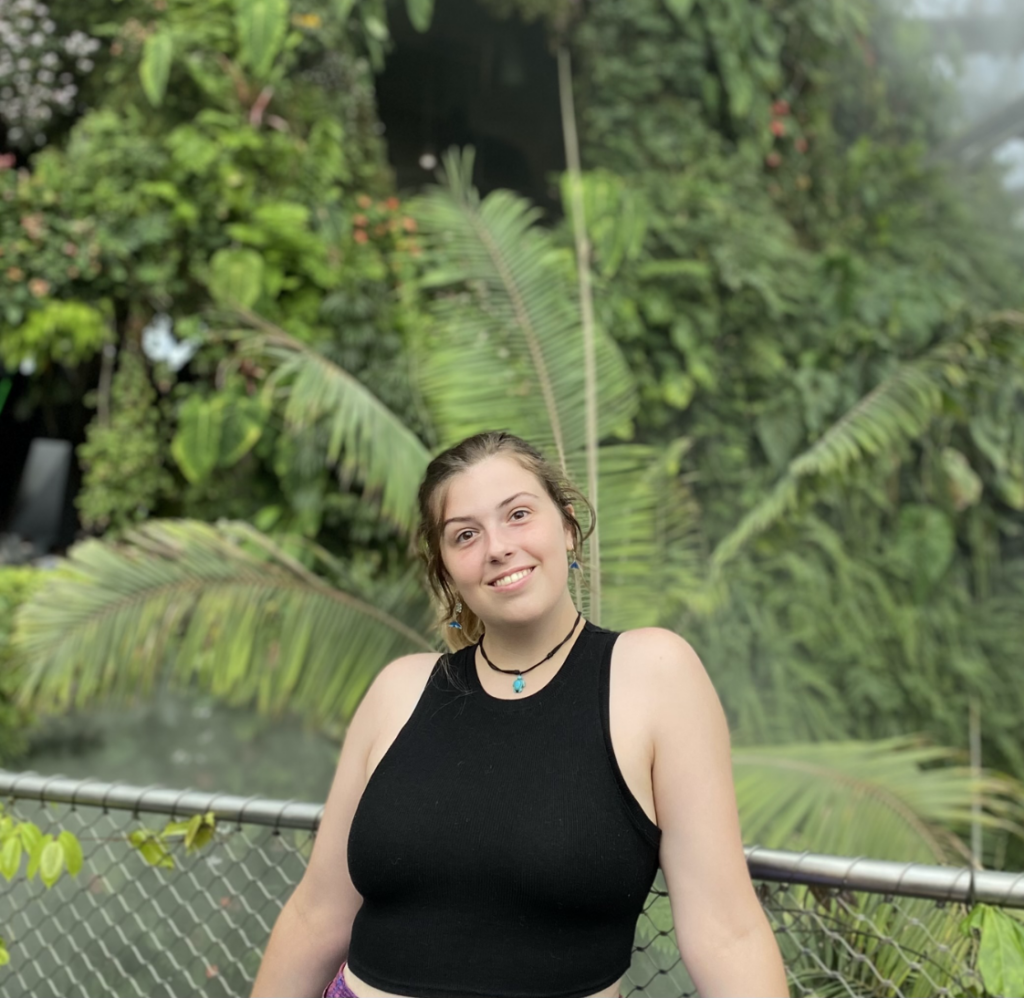
Originating from a land locked mountain town in Colorado, Jess has always been enamoured by the creatures of the deep, and their evolutionary tracks. She will be completing her bachelors of Marine Science at James Cook University Australia in December 2024, and is hoping to continue to her educational journey towards further study within the field of Antarctic and deep sea research.
Previous group members
Alyssa Budd
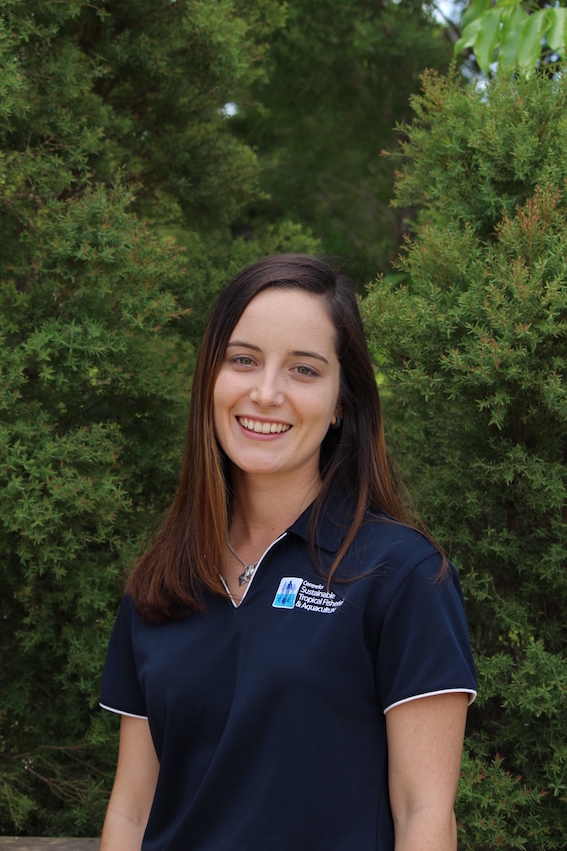
Alyssa Budd uses a range of molecular and bioinformatic tools to investigate evolution, ecology and environment. Alyssa’s keen interest in molecular biology developed following completion of a Bachelor of Science with Majors in Ecology and Marine Science at the University of Queensland; during her honour’s year. Working in the Degnan Marine Genomics Laboratory, Alyssa studied a set of developmental genes responsible for shell patterning in tropical abalone. This work lead to a position within the CSIRO Marine and Atmospheric Research Division, examining the evolutionary, genetic and environmental influences on prawn pigmentation for aquaculture.
Alyssa recently completed a PhD at James Cook University, which investigated the epigenomic and transcriptomic effects of temperature on sex change in Australian Barramundi. Throughout her PhD, Alyssa was involved in a broad range of projects from sequencing HPV in marine turtles to conducting aerial dugong surveys along Australia’s east coast. Currently, Alyssa works in the Marine Omics Lab to develop environmental DNA survey methods to detect rare marine species.
Brooke Whitelaw
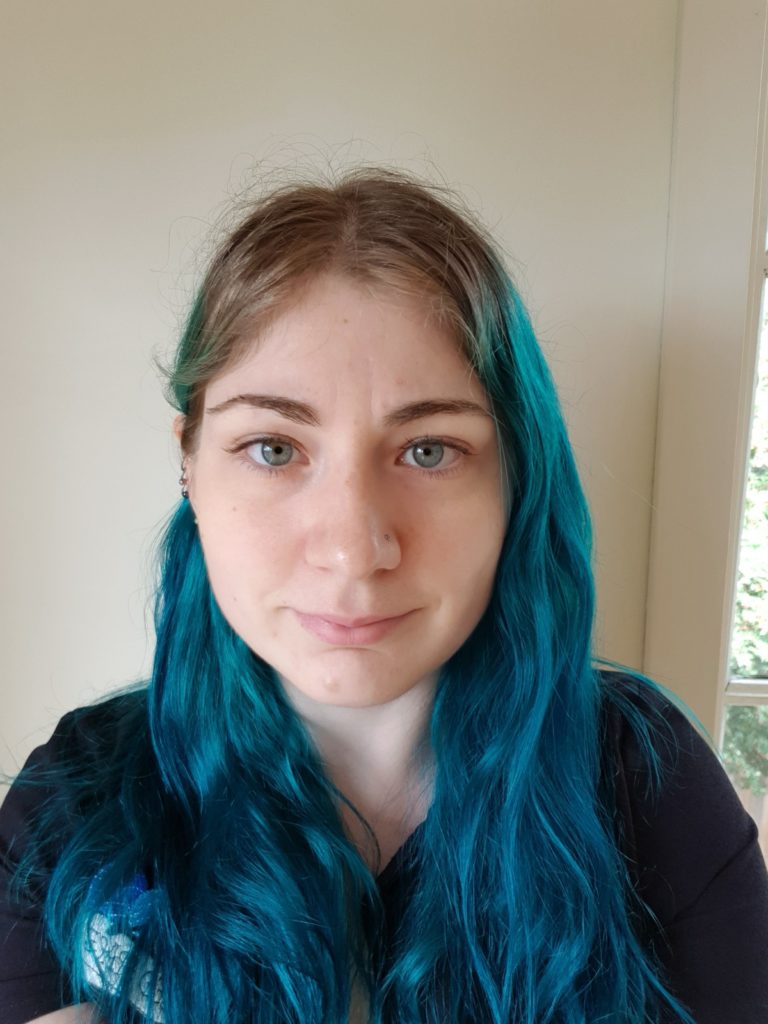
Brooke Whitelaw uses genomic, transcriptomic and proteomic techniques to investigate the evolution of venom within cephalopods. Originally completing a Bachelors of Wildlife and Conservation Biology at Latrobe University she developed an interest in cephalopod venoms. This lead to an honours project on the proteins within the posterior salivary glands (venom producing glands) in the southern blue-ringed octopus (Hapalochlaena maculosa) and the southern sand octopus (Octopus kaurna). She is currently pursuing this interest into her PhD ,which examines the evolution of octopod venom between two different systems: one containing the non-proteinaceous neurotoxin tetrodotoxin (southern blue-ringed octopus) and one with presumably predominantly proteinaceous neurotoxins (Californian two spot octopus). Her focus lies on the impact of a potent non-proteinaceous toxin into a venom system and the underlying evolutionary processes that allow for the incorporation of a toxin such as tetrodotoxin into a species.
Catarina Silva
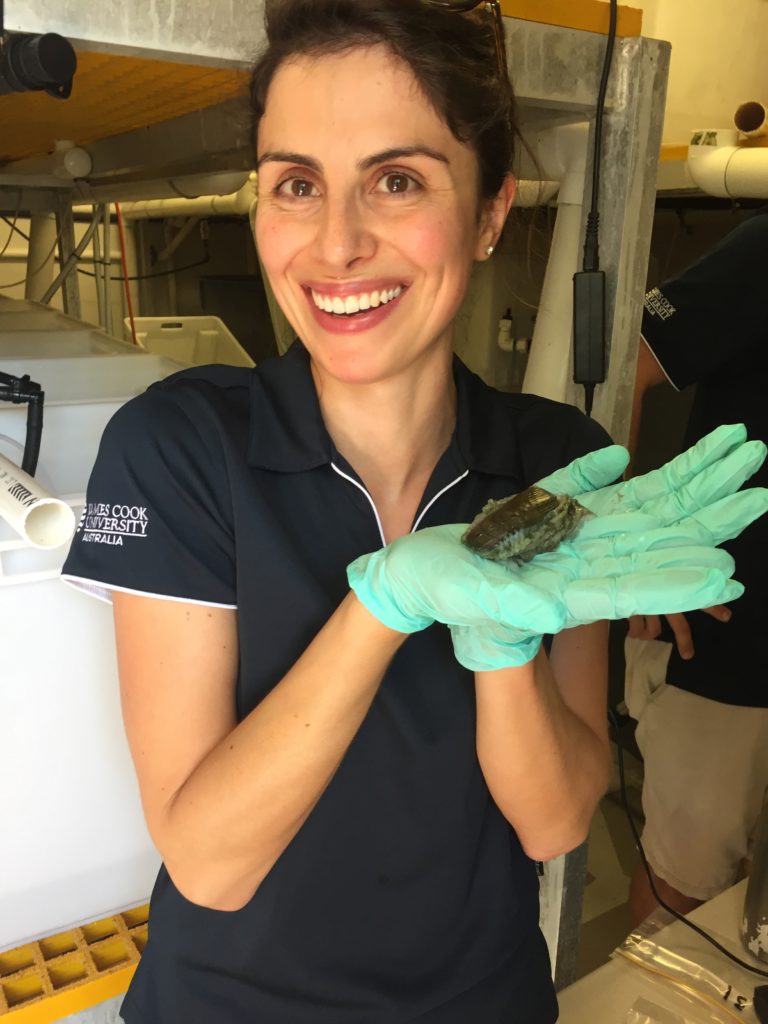
Currently she is using genomic tools (single nucleotide polymorphisms or SNPs) to investigate neutral and adaptive processes influencing the divergence patterns of a range of lobster species. She also applies genomic tools to tackle challenging issues and opportunities in fisheries, aquaculture and conservation.
Catarina’s general research interests are related to understanding the interactions between genotype, phenotype and the environment. She uses genetic and ecological approaches to study the complex mechanisms driving the adaptation and dispersal of organisms (for example by examining patterns of connectivity, gene flow, plastic responses and genetic signatures of local adaptation).
Shannon Kjeldsen
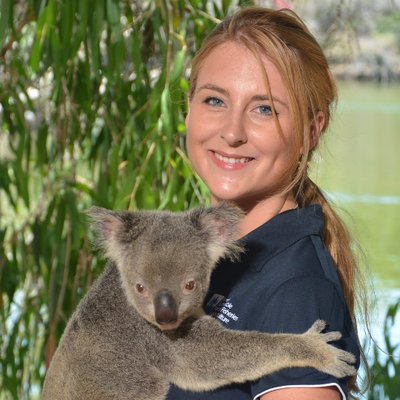
Shannon is passionate about wildlife conservation, and uses genomic tools to investigate a variety of ecological questions. She completed her undergraduate degree in Animal and Veterinary Bioscience (with honors) at the University of Sydney, before moving to Townsville, Australia to pursue a PhD project investigating population genetics of koalas across Australia. Using the skills developed throughout her studies, she has been involved with a variety of different genomics projects, from phylogeny and population structure of native Australian mammals (including koalas and dingoes), to captive breeding of aquaculture species, and developing non-invasive monitoring techniques for marine fishes.
She is currently involved in a citizen science project – Redmap Australia (www.redmap.org.au), which aims to track marine species which may be shifting their distributions as a result of climate change.
Legana Fingerhut
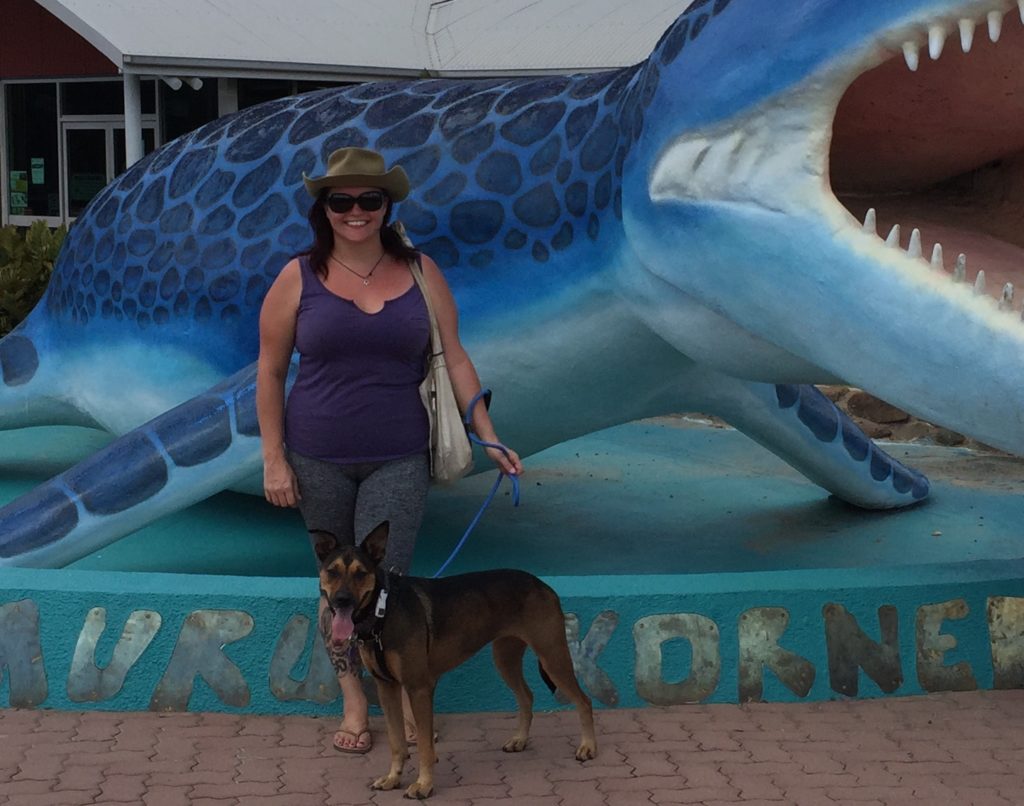
Legana completed her degrees in Zoology and Ecology & Conservation and Honours in Molecular Biology which incorporated a fascinating octopus venom research project. During her Honours, she developed an interest in bioinformatics and its potential for large and efficient data management. This led her to a PhD that involves a genome wide search for antimicrobial peptides in the stony coral Acropora millepora. Legana will investigate antimicrobial peptide expression throughout coral development and explore how this expression changes with mucus and its associated microbiome. She will additionally utilise a comparative genomics approach to study antimicrobial peptide evolution in coral species. Legana is a wildlife carer and snake catcher and exceedingly fond of bats and reptiles.
